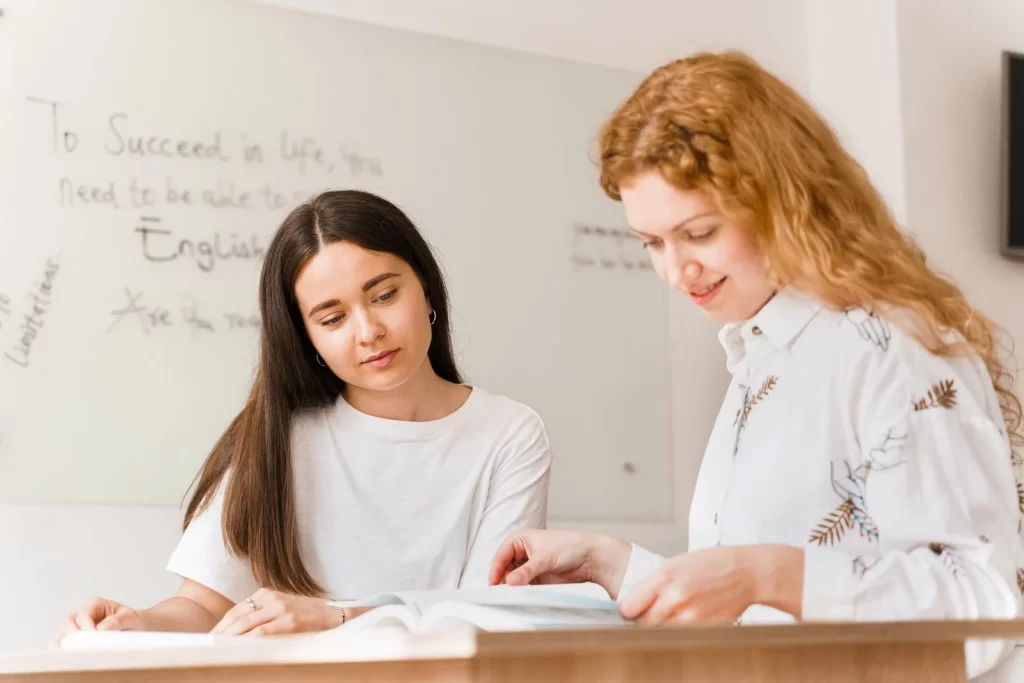Abu Dhabi’s educational system serves one of the world’s most diverse student populations, with learners from over 200 nationalities bringing unique backgrounds, learning styles, and academic needs into classrooms across the emirate. This rich diversity, while creating incredible opportunities for cross-cultural learning, also presents significant challenges for educators trying to meet every student’s requirements through traditional one-size-fits-all approaches.
The current educational landscape in Abu Dhabi reflects rapid changes in both student demographics and academic expectations. Schools must prepare students for globally competitive universities while honoring diverse cultural values and learning traditions. Traditional teaching methods, though valuable, often fall short of addressing the varied paces, interests, and abilities that characterize modern classrooms.
What is an Advanced Learning Plan?
An advanced learning plan serves as a comprehensive roadmap tailored to individual students, outlining their learning objectives, preferred learning methods, assessment strategies, and progress milestones. Unlike generic curriculum guides that apply broadly to entire grade levels, these plans recognize that effective education must tailor itself to each learner’s specific needs and circumstances.
The concept extends beyond simple academic accommodation to encompass a holistic view of student development. A well-designed learning plan considers not only academic subjects but also social-emotional development, cultural background, language proficiency, and future aspirations. This comprehensive approach ensures that education serves the whole student rather than just delivering curriculum content.
Components of Effective Learning Plans
Every effective individual learning plan contains several key components that work together to support student success. These elements include detailed learning objectives aligned with both curriculum standards and student interests, flexible pacing guidelines that allow students to progress at optimal speeds, and varied instructional methods that accommodate different learning preferences.
Assessment strategies within these plans focus on authentic evaluation methods that demonstrate real understanding rather than mere memorization. Regular review and adjustment mechanisms ensure that plans remain relevant and practical as students grow and their needs change throughout the academic year.
The Importance of an Advanced Learning Plan in Abu Dhabi's Schools
Catering to Diverse Learning Styles and Needs
Abu Dhabi’s classrooms bring together students with vastly different educational backgrounds, language proficiencies, and cultural approaches to learning. Some students excel with visual presentations and hands-on activities, while others prefer verbal instruction and independent reading. An advanced learning plan acknowledges these differences and provides multiple pathways for accessing and demonstrating learning.
The linguistic diversity in Abu Dhabi schools particularly benefits from personalized learning approaches. Students learning in their second or third language need different supports and pacing compared to native speakers. Advanced learning plans can incorporate language development goals alongside academic content, ensuring that language barriers don’t prevent students from demonstrating their knowledge and abilities.
Supporting Students' Academic and Career Goals
Each student arrives at school with different dreams, interests, and career aspirations that should influence their educational experience. An advanced learning plan connects current learning activities to future goals, helping students understand the relevance of their studies and maintain motivation for academic achievement.
For students interested in STEM careers, learning plans might emphasize hands-on laboratory experiences and mathematical problem-solving. Those drawn to creative fields could benefit from project-based learning that incorporates artistic expression and innovative thinking. By aligning current learning with future aspirations, these plans make education more meaningful and engaging.
Ensuring Equity and Inclusivity in Education
Equity in education means providing every student with what they need to succeed, which often requires different approaches for different learners. Advanced learning plans promote equity by ensuring that individual challenges don’t become barriers to academic achievement. Students with learning differences, those from disadvantaged backgrounds, or those adjusting to new cultural environments all benefit from personalized support strategies.
These plans also recognize and build upon students’ existing strengths and cultural knowledge. Rather than viewing diversity as a challenge to overcome, effective learning plans treat varied backgrounds as assets that enrich the learning experience for everyone involved.

Key Elements of an Advanced Learning Plan
Personalized Learning Objectives
Practical learning objectives within an advanced learning plan strike a balance between curriculum requirements and individual student interests and abilities. These objectives should be specific, measurable, and achievable while still challenging students to grow academically. They must align with official curriculum standards while allowing flexibility in how students demonstrate mastery.
Essential Components of Learning Objectives:
- Clear performance expectations aligned with grade-level standards
- Connections to student interests and career goals
- Multiple ways for students to demonstrate understanding
- Regular milestone checkpoints for progress monitoring
- Flexibility to adjust difficulty based on student performance
Assessment and Feedback Mechanisms
Traditional testing often fails to capture the full range of student knowledge and abilities. Advanced learning plans incorporate diverse assessment methods that allow students to demonstrate their understanding through various formats, including projects, presentations, portfolios, and performance tasks.
Feedback within these plans focuses on growth and improvement rather than just evaluation. Students receive regular, specific feedback that helps them understand their progress and identify next steps for learning. This ongoing communication builds metacognitive skills that support lifelong learning.
Incorporating Diverse Learning Resources and Techniques
Modern learning plans draw from a wide variety of educational resources and teaching techniques to cater to different learning preferences and needs. This may include digital learning platforms, hands-on manipulatives, collaborative group work, independent research projects, and community-based learning experiences.
Technology plays a vital role in personalizing learning experiences. Adaptive learning software can adjust difficulty levels in real-time, while digital portfolios allow students to document and reflect on their learning progress. Online resources provide access to content in multiple languages and formats, supporting the diverse needs of Abu Dhabi’s student population.

How to Create a Learning Plan for Students in Abu Dhabi
Step-by-Step Guide for Educators and Parents
Understanding how to create a learning plan requires a systematic approach that involves multiple stakeholders working together. The process begins with a comprehensive assessment of the student’s current academic level, learning preferences, interests, and goals. This assessment should include both formal academic testing and informal observation of how the student learns best.
Steps for Developing Effective Learning Plans:
- Comprehensive Student Assessment – Evaluate current academic skills, learning preferences, and interests
- Goal Setting – Establish both short-term and long-term learning objectives
- Strategy Selection – Choose instructional methods and resources that match student needs
- Timeline Development – Create realistic schedules for achieving learning milestones
- Support System Planning – Identify adults and peers who will assist with the plan implementation
- Assessment Design – Develop methods for measuring progress and success
- Review Schedule – Establish regular times for evaluating and adjusting the plan
Collaboration Between Teachers, Parents, and Students
Successful implementation of any learning plan requires active collaboration between all stakeholders. Teachers bring professional expertise about curriculum and instruction, parents contribute intimate knowledge of their child’s strengths and challenges, and students provide insight into their own learning preferences and goals.
Regular communication between these parties ensures that everyone understands their role in supporting the student’s success. This might include weekly check-ins, monthly progress reviews, and quarterly plan adjustments based on new information or changing circumstances.
Adapting the Plan Over Time
Learning plans must remain flexible and responsive to student growth and changing needs. What works well at the beginning of the school year might need adjustment as students develop new skills or encounter different challenges. Regular review and revision ensure that plans continue to serve student needs effectively.
Successful adaptation requires ongoing data collection about student progress, regular feedback from all stakeholders, and willingness to make changes when current strategies aren’t working. This iterative process helps students develop resilience and adaptability, ensuring their educational experience remains both appropriately challenging and supportive.
Future-Focused Education in Abu Dhabi
The implementation of advanced learning plans represents more than just an educational trend; it reflects a fundamental shift toward recognizing and honoring the individual potential within every student. As Abu Dhabi continues building its reputation as a global education hub, personalized learning approaches will become increasingly important for maintaining competitive advantage and ensuring student success.
The diverse and multicultural nature of Abu Dhabi’s student population makes individualized learning approaches particularly valuable. By acknowledging and building upon the unique strengths that each student brings to the classroom, schools create more inclusive and effective learning environments that prepare all students for future success.


